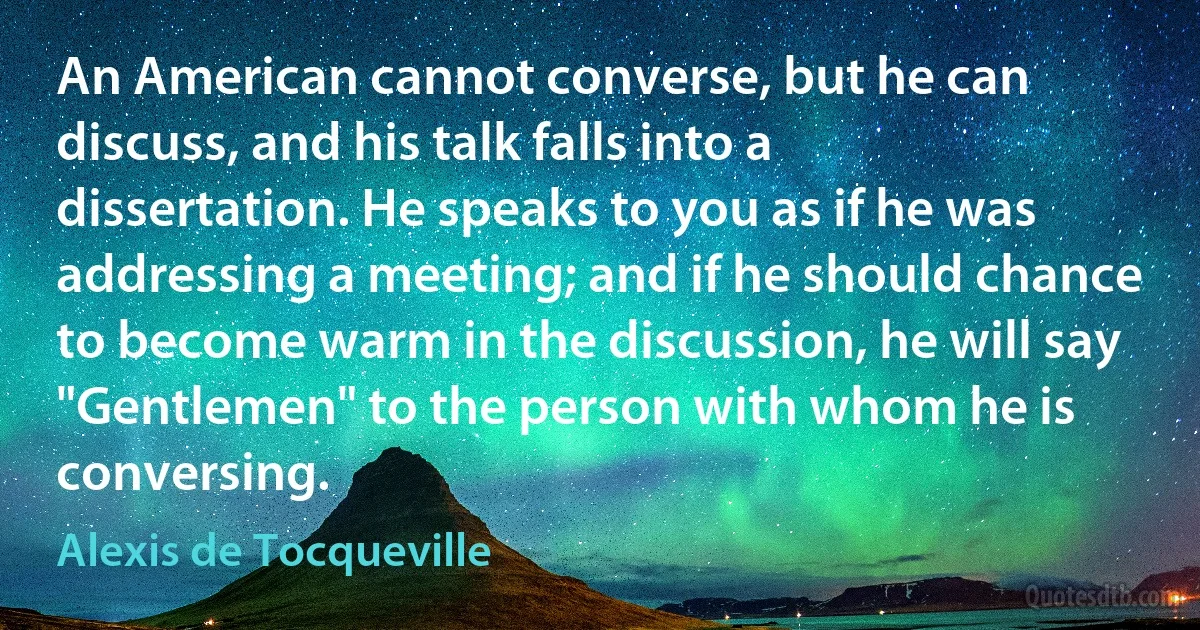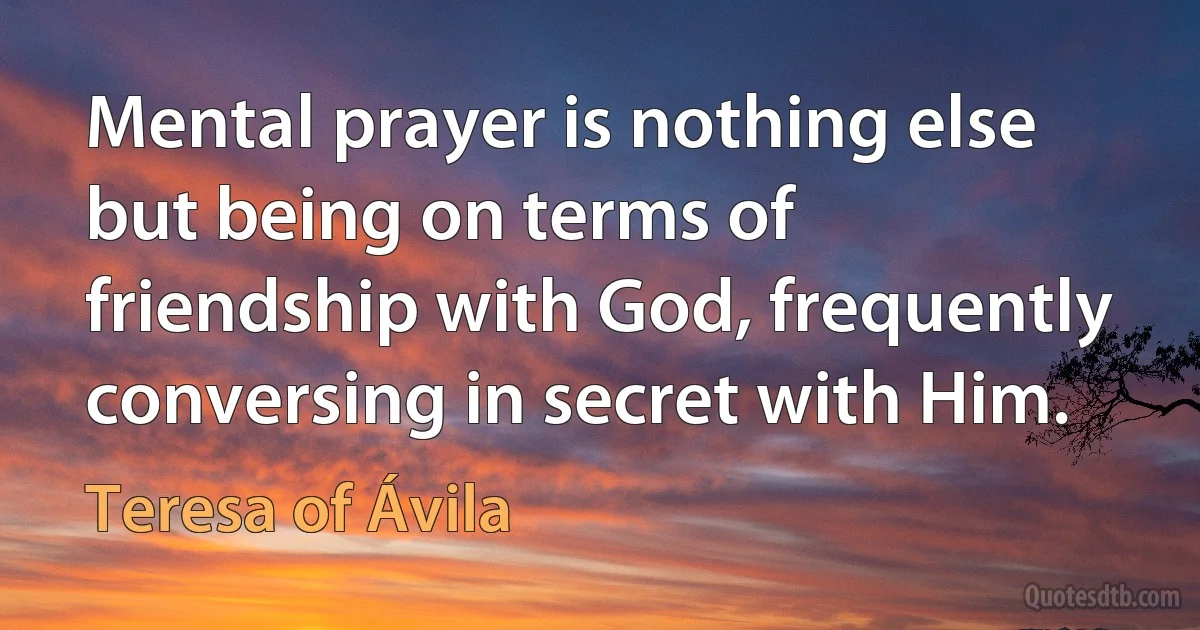Conversing Quotes
If Nixon is not forced to turn over tapes of his conversations with the ring of men who were conversing on their violations of the law, then liberty will soon be dead in this nation. If Nixon gets away with that, then Nixon makes the law as he goes along - not the Congress nor the courts. The old Court you and I served so long will not be worthy of its traditions if Nixon can twist, turn and fashion the law as he sees fit.

Earl Warren
The change of religion in Scotland, eager and vehement as it was, raised an epidemical enthusiasm, compounded of sullen scrupulousness and warlike ferocity, which, in a people whom idleness resigned to their own thoughts, and who conversing only with each other, suffered no dilution of their zeal from the gradual influx of new opinions, was long transmitted in its full strength from the old to the young, but by trade and intercourse with England, is now visibly abating, and giving way too fast to their laxity of practice and indifference of opinion, in which men, not sufficiently instructed to find the middle point, too easily shelter themselves from rigour and constraint.

Samuel Johnson
Vlaminck and Utrillo were very good friends, drinking buddies. One day they attend a funeral. They're walking behind the hearse in a procession, and they're having a great time conversing with one another. They are completely engrossed when suddenly one asks the other, 'Say, don't you smell something funny?' They look up and they're walking behind a garbage truck! They'd lost the hearse in the middle of their enthusiastic conversation.

Henry Miller
In conversing with persons who are not officially attached to Observatories or in other ways professionally cognizant of the technicalities of practical Astronomy but who nevertheless display great interest... these persons appear to regard the determination of measures like those of the distance of the Sun and Moon as mysteries beyond ordinary comprehension... [and] when persons well acquainted with the general facts of Astronomy are introduced into an Observatory, they are for the most part utterly unable to understand anything which they see...
The measure of the Moon's distance involves no principle more abstruse than the measure of the distance of a tree on the opposite bank of a river. The principles of construction of the best Astronomical instruments are as simple and as closely referred to matters of common school-education and familiar experience, as are those of the common globes, the steam engine, or the turning-lathe; the details are usually less complicated.

George Biddell Airy
Q: You seem relatively upbeat and sociable. It's funny, because I've always had this idea of you, like, always crying in the dark.
A: Most people do.
Q: Do you care about that?
A: Oh, no. It doesn't bother me. Whatever people think of me is fine, however they want to envision me. I find it curious. I'm always intrigued by who people think I am and the persona they have created for me, what they think I'm into, what they think I'm not into. But I certainly understand that consideration, that I would be a bleak and miserable person, because a lot of my lyrics are very despondent. Luckily, I have the music to use as catharsis. If I didn't, I might spend more time sitting and crying in a corner than I need to. Also, I think manners are very important. To be a sullen rain cloud when conversing with someone, be they your friends or a journalist, I think is inappropriate.

Davey Havok
But we must learn it sooner or later. There surely comes a time when the mind perceives that this world is the work of God also and not of devils, and that in the order of nature we may behold the ways of the Eternal; in fact, that God is here and now in the humblest and most familiar fact, as sleepless and active as ever he was in old Judea. This perception has come and is coming to more minds to-day than ever before--this perception of the modernness of God, of the modernness of inspiration, of the modernness of religion; that there was never any more revelation than there is now, never any more conversing of God with man, never any more Garden of Eden, or fall of Adam, or thunder of Sinai, or ministering angels, than there is now; in fact, that these things are not historical events, but inward experiences and perceptions perpetually renewed or typified in the growth of the race. This is the modern gospel; this is the one vital and formative religious thought of modern times.

John Burroughs
There are movies that require fantasy and slightly more fantastical acting. Lines that are good for certain movies, in real life circumstances, would be absolutely unbelievable things to really say, and you would look at these people like they're freaks for conversing that way. But somehow for certain styles of movies, it works, and it seems fine.

Christian Bale
It is certain that spectacles were well known in the 13th century, and not long before. ...It would certainly have been a great satisfaction to us to have been able to trace the actual steps in the progress of this most useful invention, without which most persons who have a taste for reading must have had the melancholy prospect of passing a very dull and joyless old age; and must have been deprived of the pleasure of entertaining themselves by conversing with the absent and the dead, when they were no longer capable of acting their part among the living.

Joseph Priestley



